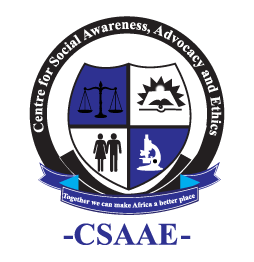In the quest for sustainable development, the role of good governance cannot be overstated. However, in Nigeria, like in many other nations, various forms of bad governance continue to impede progress and hinder the country’s advancement. Bad governance, characterized by systemic corruption, lack of openness, accountability, arbitrary policymaking, and deception of the people, stands as a formidable barrier to development. To counter this, the principles of good governance, including accountability, transparency, rule of law, participation, responsiveness, equity, and inclusiveness, must be upheld.

One of the primary causes of bad governance in Nigeria is the lack of accountability and inclusiveness. When governing entities disregard the voices of the people they represent and evade responsibility for their actions, a disconnect emerges between the government and the citizens. Accountability is a cornerstone of good governance which ensures that the public is informed and empowered to hold leaders accountable.
Corruption is a pervasive issue in Nigeria and it is intricately linked with bad governance. Corruption prevents trust in institutions, it diverts resources from essential services like healthcare and education; and undermines the rule of law. When officials prioritize personal gain over public welfare, governance suffers and the impact is felt across society. The presence of corruption within the governing structures prevents economic growth, weakens institutions, and perpetuates a cycle of maladministration.

The effects of bad governance in Nigeria are far-reaching and have profound implications for the country’s development trajectory. The phenomenon contributes to the risk of becoming a failed State, where institutions are unable to provide essential services and maintain order. Poor economic growth, fueled by mismanagement and corruption, further exacerbates social inequalities and hinders progress towards prosperity. Corruption not only undermines trust in government but also deters foreign investment and stifles innovation, constraining the nation’s potential for advancement.
In conclusion, addressing the various forms of bad governance in Nigeria is crucial to unlocking the country’s full potential and fostering sustainable development. By embracing the principles of good governance, including accountability, transparency, and inclusiveness, Nigeria can chart a path toward prosperity and ensure a brighter future for its citizens. Leaders must prioritize the public interest, uphold the rule of law, and work towards building a transparent and accountable governance system that serves the needs of all Nigerians.


